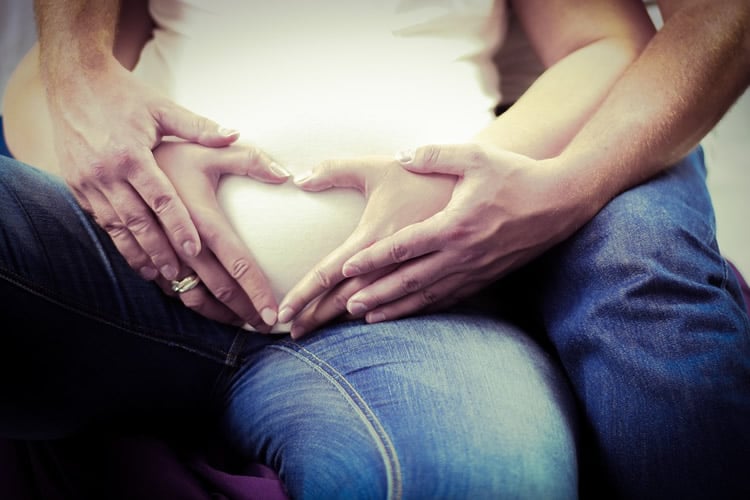Summary: Females offspring whose mothers experienced maternal immune activation while pregnant displayed an array of behavioral abnormalities associated with schizophrenia.
Source: University of Saskatchewan
Male and female rats whose mother experienced a simulated viral infection during pregnancy behave abnormally, consistent with behavioural alterations in autism or schizophrenia, research by the University of Saskatchewan (USask) shows.
The USask research, published in the journal eNeuro, found that young adult rats, exposed to a simulated viral infection in utero, displayed abnormal behaviour, suggesting specific brain changes while in the womb.
The research by John Howland physiology professor in the College of Medicine, suggests that inflammation during pregnancy alters the brain development of unborn offspring and may predispose them to psychiatric illness, including schizophrenia.
Howland’s findings are consistent with human studies linking exposure to inflammation in the womb to increased rates of psychiatric disorders including schizophrenia and autism.
Previous studies have found that babies whose mothers were exposed to the flu virus during the first half of their pregnancy may face a higher risk of developing schizophrenia in later life.
Schizophrenia, a serious psychiatric illness, affects around one per cent of the population. The risk of developing the illness as an adult can be up to three per cent among those whose mothers contracted flu in the first half of their pregnancy.
“Members of my laboratory have conducted a number of studies related to the effects of inflammation during pregnancy on the behaviour of the offspring using a rat model. Our research, and that of other labs around the world, consistently reveals long-lasting effects of in utero exposure to inflammation in the offspring,” Howland said.
Extensive testing of rats exposed to a simulated virus in utero showed that the young adult offspring had reduced working memories and altered fear responses, suggesting that aspects of their cognition were altered.
They were also less sociable with other rats, compared to those whose mothers had not been treated while pregnant.

Howland’s team has been studying the impact of maternal immune activation for years and found similar effects in both male and female offspring, exposed to inflammation while in utero. Research has historically been conducted mostly in males.
Brittney Lins, a graduate student and member of the USask research team, said:
“Our research showed that experiences during development affect the brain, and we saw that inflammation during pregnancy affected social behaviour and memory in rat offspring as adults.”
Funding: The research was funded by the Canadian Institutes of Health Research.
Source:
University of Saskatchewan
Media Contacts:
Jennifer Thoma – University of Saskatchewan
Image Source:
The image is in the public domain..
Original Research: Open access
“Maternal Immune Activation during Pregnancy Alters the Behavior Profile of Female Offspring of Sprague Dawley Rats”. Brittney R. Lins, Wendie N. Marks, Nadine K. Zabder, Quentin Greba and John G. Howland. eNeuro. doi:10.1523/ENEURO.0437-18.2019
Abstract
Maternal Immune Activation during Pregnancy Alters the Behavior Profile of Female Offspring of Sprague Dawley Rats
Sex differences are documented in psychiatric and neurological disorders, yet most preclinical animal research has been conducted in males only. There is a need to better understand of the nature of sex differences in brain disease in order to meet the needs of psychiatric patients. We present the behavior profile of adult female offspring produced using a maternal immune activation (MIA) model where pregnant rats receive an immune stimulant and the offspring typically show various abnormalities consistent with psychiatric illnesses such as schizophrenia and autism. The results in female offspring were compared to a previously published cohort of their male siblings (Lins et al., 2018). We examined prepulse inhibition (PPI), sociability, MK-801-induced locomotor activity, crossmodal object recognition (CMOR), and oddity discrimination; behaviors relevant to the positive, negative, and cognitive symptoms of schizophrenia. No between-treatment differences in PPI or locomotor activity were noted. Tactile memory was observed in the control and treated female offspring, visual recognition memory was deficient in the polyinosinic:polycytidylic acid (polyI:C) offspring only, and both groups lacked crossmodal recognition. PolyI:C offspring were impaired in oddity preference and had reduced preference for a stranger conspecific in a sociability assay. Systemic maternal CXCL1, IL-6, and TNF-a levels 3 h after polyI:C treatment were determined, but no relationship was found between these cytokines and the behavior seen in the adult female offspring. Overall, female offspring of polyI:C-treated dams display an array of behavior abnormalities relevant to psychiatric illnesses such as schizophrenia similar to those previously reported in male rats.






